Large Language Models (LLMs) are the latest AI systems, which are trained from very large code sets as well as text sets, consequently enabling them to understand prompts and output in a human-like manner. LLMs can code, inspect, comment, and debug code at very high speeds and accuracies employing different codebases.
In the past few years, LLMs have transformed software development. Tiresomely typed, line after line, hour after hour work can nowadays be accomplished in minutes. By prototyping faster, by mechanizing repetitive tasks, even by authoring full-fledged applications in natural language dialog, developers can accomplish more, much faster. LLMs are extremely convenient tools for individual developers, startup founders, as well as bigger dev teams.
But now that the floodgates have been opened to the dozens of alternate models, each of which has unique features, license deals, and price points, the selection of the proper LLM in 2025 is more than ever necessary. The correct choice can give your workflow the turbo boost, but the incorrect choice can constrain your efficiency or balloon your budgets.
In this blog, we are going to discuss the top LLMs for coding in the year 2025, their advantages and disadvantages, price offers, and real user reviews in the name of helping you choose the appropriate model.
How We Ranked These LLMs
To help you find the best Large Language Models (LLMs) for coding in 2025, we used a comprehensive evaluation process based on real-world performance and developer needs. Each model was analyzed and ranked using the following criteria:
- Code Accuracy
How well does the LLM generate correct, functional, and production-ready code across multiple languages and tasks? - Speed & Efficiency
How fast does the model respond to prompts, and how smoothly does it operate in real-time coding workflows? - Cost-Effectiveness
Is the pricing reasonable based on features, usage limits, and overall value? We compare free vs. paid plans and enterprise options. - Integrations (IDEs, APIs)
Does the model offer seamless integration with popular development environments like VS Code, JetBrains, or GitHub Copilot? Are APIs developer-friendly? - Community Feedback & User Experience
What are developers saying about the model? We consider user reviews, GitHub issues, forums, and satisfaction surveys. - Language & Framework Support
How many programming languages and frameworks does the LLM support? Does it understand niche or modern tech stacks like Rust, Go, React, or Next.js?
By scoring each LLM across these categories, we’ve identified the top models that deliver the most value to coders in 2025—whether you’re building mobile apps, web services, or enterprise software.
2025 Coding LLM Performance Comparison
Benchmarking top AI coding assistants across key development metrics
| Feature | GitHub Copilot | Qwen (Alibaba) | ChatGPT (GPT-4o) | DeepSeek Coder |
|---|---|---|---|---|
| Overview | AI coding assistant by GitHub & OpenAI; integrated into IDEs | Open-source LLM by Alibaba; great for multilingual devs | Chat-based coding assistant with top-tier reasoning | Open-source coder-focused LLM optimized for performance |
| 🟢 Reasons to Buy | – Smooth IDE integration- Fast autocomplete- GitHub ecosystem- “Workspace” project support | – Free & open-source- Fast local inference- Strong multilingual support- Long context window | – Great for code + explanation- 128K+ context- High reasoning power- VS Code plugin & file tools | – High token support- Open-source- Great for local dev- Strong in Python & TS |
| 🔴 Reasons to Avoid | – Not open-source- Hallucinates code- Needs internet- Limited context | – Limited Western ecosystem- Docs mostly in Chinese- Fewer plugins- Less natural UI | – GPT-4o requires paid plan- May hallucinate APIs- Not language-specialized | – No built-in UI/chat- Needs setup- Weaker natural language output- Smaller community |
| 💰 Pricing | – $10/mo (Individual)- $19/mo (Business)- Enterprise plans | – Free (OSS)- Paid APIs via Alibaba Cloud | – Free (GPT-3.5)- $20/mo (Plus)- Team from $25/user | – Free (MIT License)- Unofficial APIs available |
| ⭐ User Reviews | “Autocomplete on steroids.”“Weak on deep logic.” | “Great for self-hosting.”“Needs better docs/UI.” | “Best all-around coding help.”“Great for learning.” | “Handles huge codebases.”“Not chatty, but powerful.” |
Best Large Language Models (LLMs) for Coding in 2025
Comparison: Top LLMs for Coding in 2025
- GitHub Copilot (2025 Edition)
Overview:
GitHub Copilot is one of the best AI coding assistants out there. It uses OpenAI’s advanced models, such as GPT-4o, to help developers work more quickly. It works perfectly with well-known IDEs like Visual Studio Code, JetBrains, and Neovim. It gives you code suggestions, autocompletion, and documentation hints in real time. The “Copilot Workspace” feature, which was updated for 2025, uses GitHub’s ecosystem to provide project-wide scaffolding and context-aware suggestions. This makes it perfect for developers who are working on projects that are hosted on GitHub or that are shared with others.
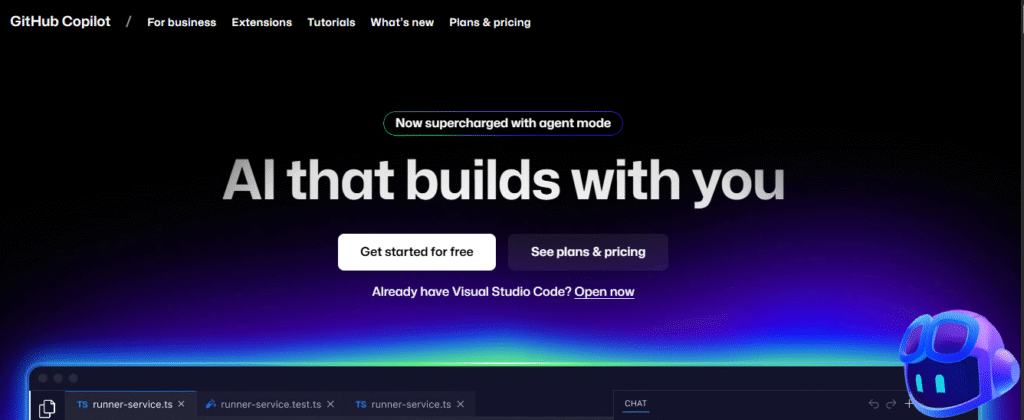
Reasons to Buy
- Seamless integration with Visual Studio Code, Neovim, and JetBrains for a smooth coding experience.
- Great for speeding up boilerplate code and repetitive tasks, saving time on routine coding.
- Backed by Microsoft and GitHub, ensuring a robust ecosystem with strong support and updates.
- New “Copilot Workspace” provides intelligent, full-project scaffolding and suggestions.
Reasons to Avoid
- Requires a constant internet connection as it’s cloud-based, limiting offline use.
- Occasionally suggests insecure or deprecated code, requiring careful review.
- Limited context window compared to other LLMs, which can hinder complex project handling.
- Not very customizable due to its closed-source nature, restricting flexibility.
Pricing Plans
- Copilot Individual: $10/month or $100/year.
- Copilot Business: $19/month per user.
- Copilot Enterprise (2025 update): Custom pricing for organization-wide deployment.
User Reviews
- “Great for everyday coding. Speeds up JS/TS dev like magic.”
- “Not reliable for complex logic or debugging.”
- “It guesses wrong sometimes, but it’s like autocomplete on steroids.”

- Qwen (Alibaba) (2025 Edition)
Overview:
Qwen, developed by Alibaba, is a free, open-source LLM tailored for developers who value flexibility and local deployment. Designed to run efficiently on local hardware, Qwen supports fast inference, making it a great choice for those who want to host their own AI without cloud services. It supports a wide range of programming languages and excels in multilingual environments, particularly for Asian languages. Its long context window makes it suitable for handling large codebases, and its open-source nature allows for customization and cost-free use.
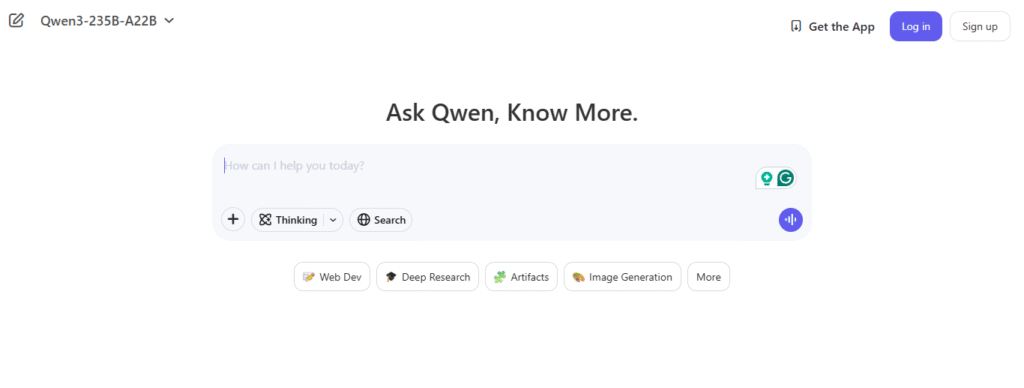
Reasons to Buy
- Free and open-source, perfect for developers on a budget or those preferring self-hosted solutions.
- Fast local inference enables efficient performance on personal hardware without cloud dependency.
- Strong multilingual support, especially for Asian languages, catering to diverse developer needs.
- Long context window handles large codebases, ideal for complex projects.
Reasons to Avoid
- Documentation is primarily in Chinese, posing a challenge for non-Chinese-speaking developers.
- Limited integration with Western development tools and fewer plugins compared to competitors.
- Less intuitive user interface, which can feel clunky for new users.
- Smaller community, resulting in fewer resources and third-party support.
Pricing Plans
- Free (open-source under permissive license).
- Paid APIs available via Alibaba Cloud for cloud-based access (pricing varies).
User Reviews
- “Awesome for self-hosting and free coding projects.”
- “Needs better English docs and a smoother UI.”
- “Powerful for local dev, but setup takes some effort.”

- ChatGPT (GPT-4o) (2025 Edition)
Overview:
ChatGPT, powered by OpenAI’s GPT-4o, is a versatile chat-based AI that excels in coding, debugging, and explaining complex concepts. With a massive context window exceeding 128,000 tokens, it handles large-scale projects effortlessly. Its VS Code plugins and file-handling capabilities make it a strong choice for developers, while its ability to explain code in simple terms benefits both beginners and experts.
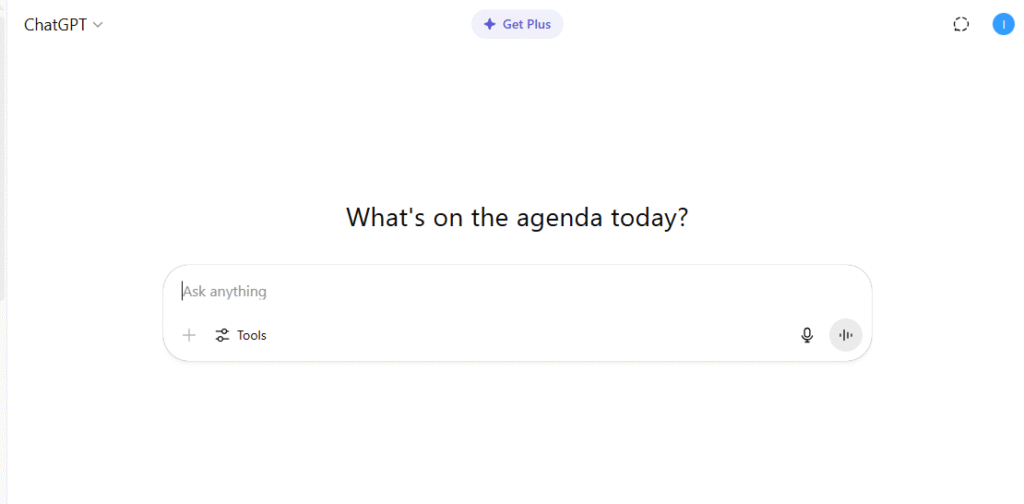
Reasons to Buy
- Excellent for generating code and providing clear explanations, ideal for learning and debugging.
- Massive 128K+ context window supports complex, large-scale coding projects.
- High reasoning capabilities make it great for solving logic-heavy coding problems.
- VS Code plugins and file-handling tools enhance integration with development workflows.
Reasons to Avoid
- GPT-4o requires a paid subscription, with limited capabilities in the free GPT-3.5 version.
- May hallucinate APIs or struggle with niche programming languages, requiring validation.
- Not as specialized for coding as dedicated tools like Copilot or DeepSeek Coder.
- Higher cost compared to open-source alternatives.
Pricing Plans
- Free (GPT-3.5 with limited features).
- ChatGPT Plus: $20/month for GPT-4o access.
- ChatGPT Team: $25/month per user for team deployments.
User Reviews
- “Best all-around coding helper with amazing explanations.”
- “Great for learning, but not perfect for niche languages.”
- “Worth the price for its reasoning and project support.”
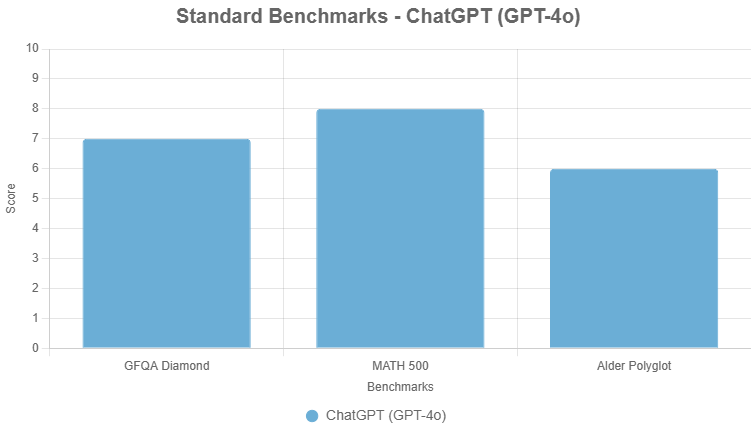
- DeepSeek Coder (2025 Edition)
Overview:
DeepSeek Coder is an open-source LLM built specifically for coding, offering high performance for local development environments. It supports large token counts, making it ideal for processing extensive codebases, and excels in languages like Python and TypeScript. Licensed under the MIT License, it’s free to use and modify, appealing to developers seeking cost-effective, customizable solutions.

Reasons to Buy
- High token support allows seamless handling of large codebases.
- Open-source and free under MIT License, offering full customization.
- Optimized for local development, ideal for privacy-conscious or offline workflows.
- Strong performance in popular languages like Python and TypeScript.
Reasons to Avoid
- Lacks a built-in chat interface or polished UI, requiring technical setup.
- Weaker natural language output, focusing more on code than explanations.
- Smaller community means fewer tutorials, forums, or third-party support.
- No native IDE integrations, unlike Copilot or ChatGPT.
Pricing Plans
- Free (MIT License for open-source use).
- Unofficial APIs available for cloud access (pricing varies by provider).
User Reviews
- “Handles huge codebases like a champ.”
- “Not great for casual users due to setup hassle.”
- “Powerful for Python/TS, but don’t expect chatty responses.”

4. Best LLMs by Use Case
For Debugging
- Claude 3.5: Anthropic’s Claude 3.5 is exceptional for debugging due to its strong reasoning capabilities and precise error identification. It excels at analyzing code, spotting logical flaws, and suggesting fixes with clear explanations, making it a top choice for complex debugging tasks.
- GPT-4.5: OpenAI’s GPT-4.5 offers advanced debugging support with its ability to parse large codebases and provide detailed, context-aware solutions. Its high reasoning power helps uncover subtle bugs and recommend optimized fixes, though it requires a paid subscription.
For Fast Prototyping
- Replit AI: Replit AI is designed for rapid prototyping, offering real-time code generation and execution within the Replit platform. Its tight integration with an online IDE makes it perfect for quickly building and testing prototypes, especially for web and scripting languages.
- Code Llama 3: Meta AI’s Code Llama 3 is a lightweight, open-source model optimized for fast code generation. It’s ideal for developers needing to prototype applications quickly without heavy computational resources, supporting a wide range of programming languages.
For ML/AI Development
- Gemini 1.5: Google’s Gemini 1.5 is tailored for machine learning and AI development, with strong support for frameworks like TensorFlow and PyTorch. Its ability to generate optimized ML code and handle data pipeline tasks makes it a favorite for AI developers.
- GPT-4.5: GPT-4.5 excels in ML/AI tasks due to its deep understanding of complex algorithms and ability to generate code for training models, data preprocessing, and model deployment. Its versatility makes it a strong contender, though it comes with a subscription cost.
For Backend Development
- DeepSeek Coder: DeepSeek Coder is a top pick for backend development, particularly for Python and TypeScript projects. Its large token support and optimization for local environments make it ideal for building robust server-side applications and APIs.
- Code Llama: Code Llama is well-suited for backend tasks, offering efficient code generation for server-side languages like Python, Java, and Node.js. Its open-source nature and performance make it a reliable choice for backend developers.
For Learning & Education
- Replit AI: Replit AI is excellent for learning, combining code generation with an interactive online IDE. It provides real-time feedback and explanations, making it ideal for students and beginners exploring programming concepts.
- Mistral Codestral: Mistral’s Codestral is designed for educational purposes, offering clear code explanations and support for multiple languages. Its focus on simplicity and accessibility makes it a great tool for those new to coding.
5. Trends in LLMs for Coding (2025 Edition)
- Local LLMs Gaining Popularity: Developers are increasingly adopting open-source, locally hosted LLMs like DeepSeek Coder and Qwen for privacy, cost savings, and offline capabilities, reducing reliance on cloud-based solutions.
- AI Pair Programmers in IDEs: AI assistants like GitHub Copilot and Replit AI are becoming standard in IDEs, acting as virtual pair programmers that suggest, debug, and optimize code in real time.
- Multimodal Coding: LLMs are evolving to handle code, UI mockups, and voice inputs, enabling developers to describe interfaces or logic verbally while the AI generates corresponding code and designs.
- Longer Context Windows: Models like GPT-4o and DeepSeek Coder now support up to 1 million tokens, allowing them to process entire codebases or complex projects in a single context, improving accuracy and coherence.
- Security-Aware Coding Assistants: Newer LLMs are prioritizing secure coding practices, flagging vulnerabilities and suggesting safer alternatives to prevent issues like SQL injection or deprecated API usage.
6. Tips for Choosing the Right LLM
- Match It with Your Stack: Ensure the LLM supports your primary programming languages (e.g., Python, JavaScript, Java) and frameworks to maximize compatibility and efficiency.
- Consider Privacy: Choose self-hosted options like DeepSeek Coder or Qwen for sensitive projects requiring data privacy, or cloud-based tools like Copilot for convenience.
- Try Free/Open-Source First: Experiment with free models like Code Llama or DeepSeek Coder before committing to paid subscriptions to evaluate performance without upfront costs.
- Evaluate with Real-World Tasks: Test LLMs on actual coding challenges or projects relevant to your work to assess their accuracy, speed, and usability in practical scenarios.
7. Conclusion
Code-focused LLMs have evolved dramatically, transforming how developers write, debug, and learn code. From GitHub Copilot’s seamless IDE integration to DeepSeek Coder’s open-source power, these tools cater to diverse needs, from rapid prototyping to complex backend development. In 2025, the rise of local LLMs, multimodal capabilities, and security-focused assistants highlights the rapid innovation in this space. Developers should experiment with multiple models, balancing cost, privacy, and performance to find the best fit. Looking ahead, autonomous code agents—capable of independently designing and deploying software—may redefine coding workflows, promising an exciting future for AI-driven development.
Frequently Asked Questions (FAQs) – Best Large Language Models for Coding in 2025
What are Large Language Models (LLMs) for coding?
LLMs for coding are AI-powered tools designed to assist developers by generating, debugging, and optimizing code. Examples include GitHub Copilot, ChatGPT (GPT-4o), and DeepSeek Coder, which use advanced natural language processing to understand and produce code across various programming languages.
Which LLM is best for beginners?
For beginners, Replit AI and Mistral Codestral are excellent choices. They offer interactive learning environments and clear explanations, making it easier to understand coding concepts and practice in real-time.
Are these LLMs free to use?
Some LLMs are free with limitations, while others require paid subscriptions. For instance, Qwen (Alibaba) and DeepSeek Coder are free and open-source for self-hosted use, while GitHub Copilot starts at $10/month, and ChatGPT (GPT-4o) requires a $20/month Plus plan for full features.
Can I use these LLMs offline?
Yes, but it depends on the model. Open-source models like DeepSeek Coder and Qwen can be run offline on local hardware with proper setup. Cloud-based tools like GitHub Copilot and ChatGPT require an internet connection.
How accurate are these LLMs for coding?
Accuracy varies by model and task. Models like Claude 3.5 and GPT-4.5 excel in debugging and reasoning, but all LLMs can occasionally suggest incorrect or outdated code, so validation is recommended.
What programming languages do these LLMs support?
Most LLMs support a wide range, including Python, JavaScript, Java, and TypeScript. Code Llama 3 and DeepSeek Coder are particularly strong for Python and TypeScript, while Qwen offers robust multilingual support, especially for Asian languages.
How do I choose the right LLM for my project?
Consider your stack (e.g., Python, JS), privacy needs (self-hosted vs. cloud), and budget. Test free options like Code Llama 3 or DeepSeek Coder first, and evaluate them with real-world tasks to find the best fit.
What are the latest trends in LLMs for coding in 2025?
Trends include the rise of local LLMs, AI pair programmers in IDEs, multimodal coding (code + UI + voice), longer context windows (up to 1M tokens), and security-aware coding assistants.
Can LLMs replace human developers?
No, LLMs are tools to enhance productivity, not replace developers. They excel at repetitive tasks and suggestions but lack the creativity, context understanding, and ethical judgment of human developers.
Where can I learn more about LLM pricing or subscriptions?
For GitHub Copilot pricing, visit the official site. For ChatGPT or other OpenAI models, check their website.

Abdullah Zulfiqar writes about technology in a simple, practical way, helping readers stay updated and make smarter decisions in an ever-evolving digital world.
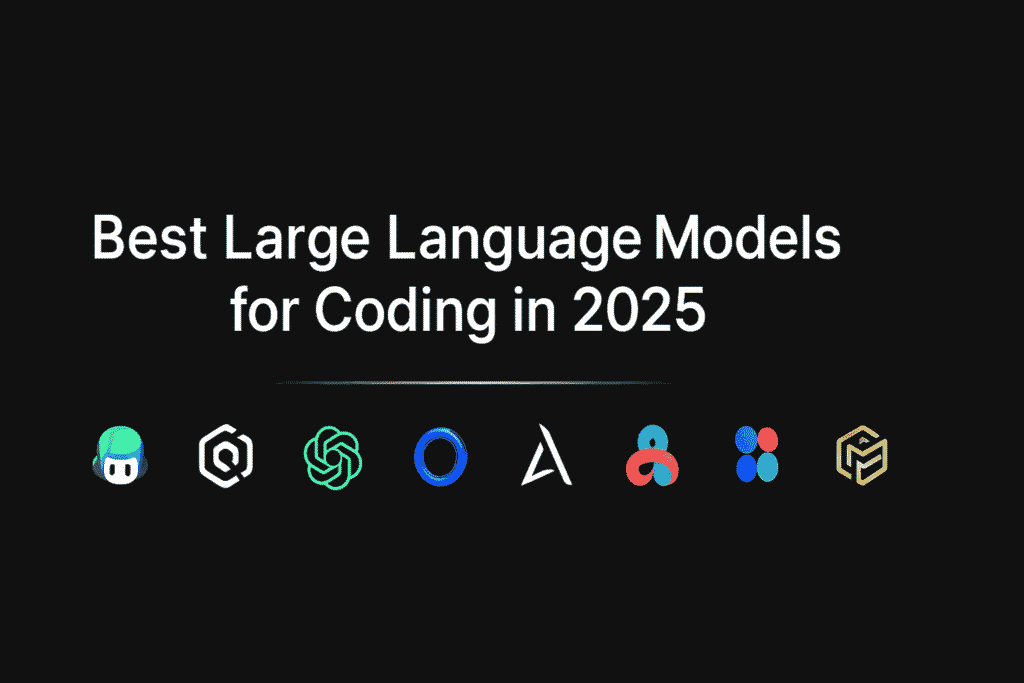


Pingback: Meta’s Hyperion Plan: Inside the $100B AI Megaproject - technologymunch.com